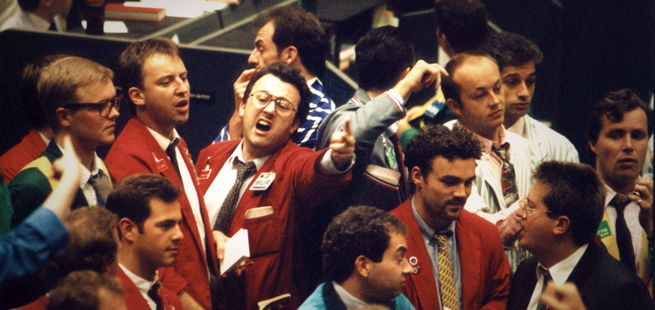
Everyone’s been frothing at the mouth over the past few weeks over Facebook’s imminent IPO, and we’ve never been more hungry for details. When will the shares be offered for public sale? How much will they cost?
While Facebook left a lot of mysterious blanks in its S-1 filing with the SEC, we can prepare for the blessed event by taking stock of Facebook’s financial performance, the state of the general economy, and recent tech IPOs on a similar scale.
To prepare you with a few key facts and a pinch of experience-based speculation, we got in touch with Dun & Bradstreet analyst and tech IPO specialist Lee Simmons.
Facebook’s IPO timing
The timing of the IPO, Simmons said, is now “entirely up to Facebook,” but he said the social network will likely be pricing its shares and making its public debut sometime over the summer. “Some analysts are saying May; I would say it won’t be after August, barring any unforeseen economic catastrophes.”
And speaking of economic catastrophies, remember last August when a record number of IPOs were delayed? Simmons said that kind of activity is well within Facebook’s purview as well. “You saw a couple companies last year pull in the reins and delay the IPO,” the analyst said. “Facebook can do the same thing.”
Simmons said we can expect to see amended S-1s, changed to reflect the number of shares and starting price, within the next few months. And Facebook’s road show should be happening soon, as well.
Mostly, though, Simmons said curious onlookers can keep their fingers on the pulse of the general economy to get a sense of when Facebook might go public. Stating that public markets will act as a bellweather for Facebook’s actions, Simmons noted that any market turbulence could make potential investors skittish.
“Thinking back to last May when LinkedIn priced, it seemed like the public markets were going to be really robust for the rest of the year,” Simmons recalled. “Then everything tanked.”
Last August’s market dive and subsequent IPO delays and disturbances are a model for what might happen if the spring brings any unexpected dips to public markets. Facebook and the cadre of banks underwriting Facebook’s IPO will be keeping an eye on the New York Stock Exchange and the Nasdaq as one factor for determining the best time to price.
Facebook’s IPO pricing
So, depending on the general market, we can expect a summer IPO for Facebook. What about its share prices; what can we expect the numbers to do on the first and subsequent days of trading?
“Facebook is being compared most often to Google,” said Simmons. Google went public in August 2004, starting shares at $85 each. The company offered just over 19 million shares, and Google closed the day with a market capitalization in excess of $23 billion. Today, GOOG shares are trading at $608.86.
“Analysts see a lot of similarities between both companies,” said Simmons. “Their revenue growth is very similar.” But Simmons continued, “The Facebook IPO will most likely dwarf Google’s.”
While Google’s shares rose to a high of $104 on the company’s first day of public trading, Facebook’s stock is more likely to mimic LinkedIn’s first day of trading, said Simmons. LinkedIn, which priced at $45 per share to open the day, quickly rose by more than 100 percent and stayed at around $103 for the majority of the first day of trading.
In short, said Simmons, “If the company wants to raise $5 billion on its opening day, that’s what it’s going to do. There is a lot of investor enthusiasm.”
This analyst (and just about every other analyst we’ve spoken to) has no doubt that Facebook will “enjoy a really big, explosive first day” of trading. “This is the one stock that tech investors have been waiting for for at least 2 years,” said Simmons. “It will garner towards the high end of its potential valuation, between $75 and $100 billion, and I wouldn’t be surprised if it reached the $100 billion mark.”
However, whether Facebook stock will have a shelf life longer than a couple of years is something Simmons said only time will. He noted that LinkedIn, which was ostensibly the first American social media firm to go public, has seen “very volatile” trading activity since its debut (LNKD is currently trading at $91 per share).
“These stocks are not invulnerable to economic conditions,” Simmons concluded. “A lot of the hype around these web 2.0 companies tends to forget that one key factor: That the economy can make a dent in share price … Two years down the line, it could go either way.”
Stay tuned for more information on Facebook’s road show and initial public offering over the next couple of months.
VentureBeat's mission is to be a digital town square for technical decision-makers to gain knowledge about transformative enterprise technology and transact. Learn More

